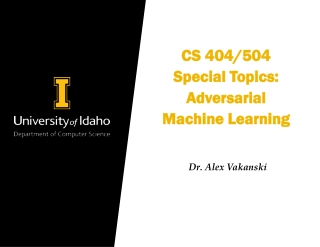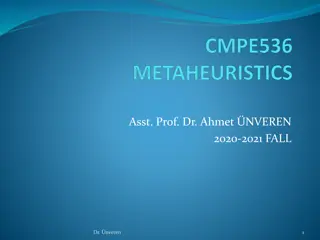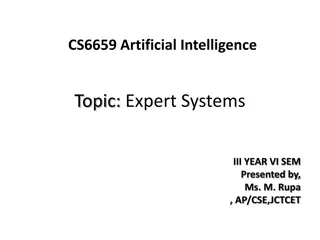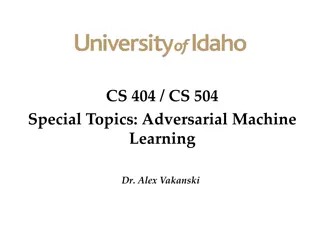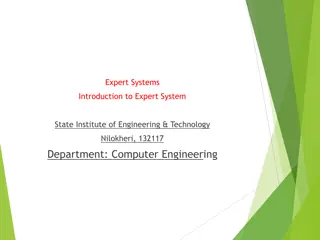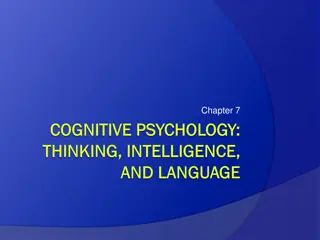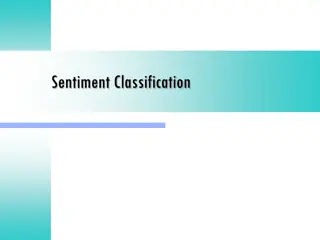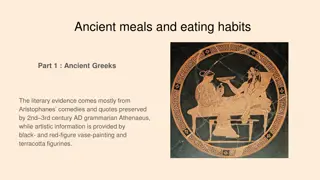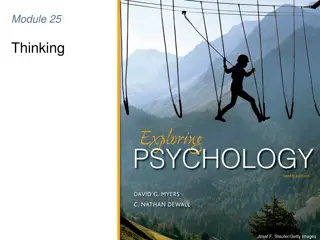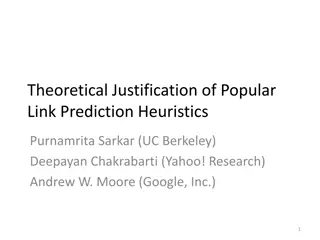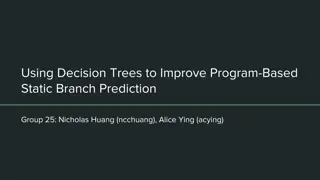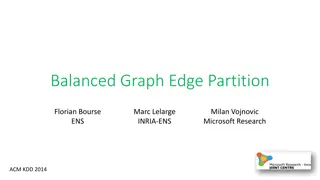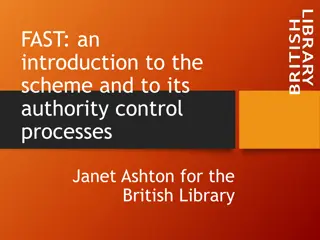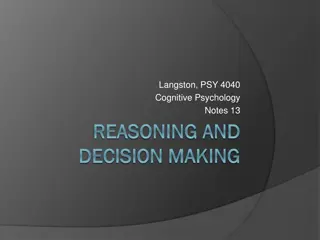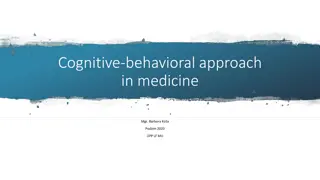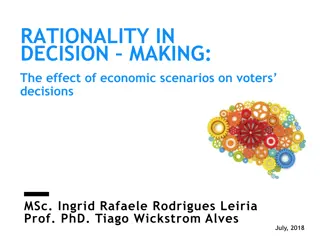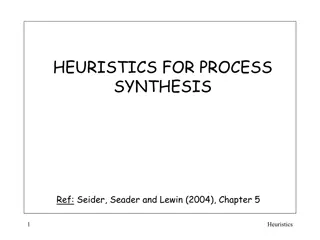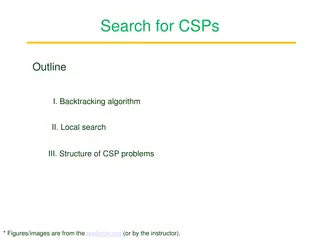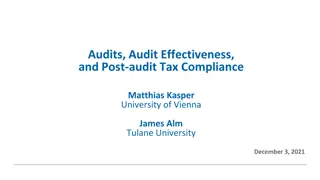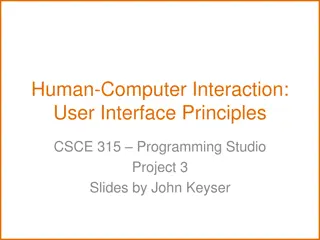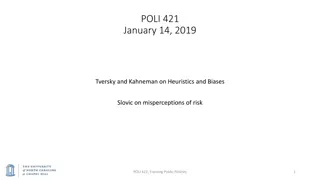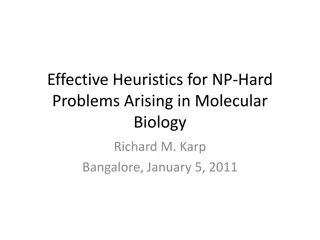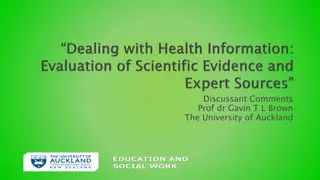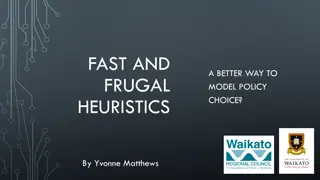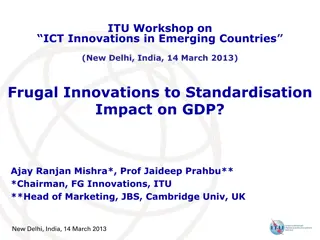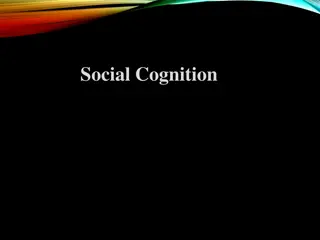Adversarial Machine Learning in Cybersecurity: Challenges and Defenses
Adversarial Machine Learning (AML) plays a crucial role in cybersecurity as security analysts combat continually evolving attack strategies by malicious adversaries. ML models are increasingly utilized to address the complexity of cyber threats, yet they are susceptible to adversarial attacks. Inves
2 views • 46 slides
Course Overview: Heuristics and Metaheuristics in Operations Research
Explore the practical issues, methods of assessment, recommended textbooks, course catalogue description, aims, and objectives of the course taught by Asst. Prof. Dr. Ahmet NVEREN on Heuristics and Metaheuristics. The course delves into various heuristic methods, metaheuristics, and optimization tec
3 views • 6 slides
Understanding Expert Systems in Artificial Intelligence
Expert systems in artificial intelligence are computer applications that utilize both facts and heuristics to solve complex decision-making problems based on knowledge acquired from experts. These systems play a crucial role in various domains such as diagnostics, chess playing, financial planning,
0 views • 24 slides
Exploring Adversarial Machine Learning in Cybersecurity
Adversarial Machine Learning (AML) is a critical aspect of cybersecurity, addressing the complexity of evolving cyber threats. Security analysts and adversaries engage in a perpetual battle, with adversaries constantly innovating to evade defenses. Machine Learning models offer promise in combating
0 views • 43 slides
Understanding Expert Systems in Computer Engineering
Expert systems are interactive computer-based decision tools that utilize facts and heuristics to solve various problems based on knowledge acquired from experts. This system consists of three main components: User Interface, Inference Engine, and Knowledge Base. The User Interface facilitates commu
4 views • 29 slides
Understanding Heuristic Evaluation in User Interface Design
Heuristic evaluation is an analytical method where experts evaluate interfaces based on usability principles. This evaluation helps in identifying potential design issues that may impact user satisfaction. The process involves a small group of evaluators reviewing the interface against a set of reco
5 views • 12 slides
Understanding Cognitive Psychology: Thinking, Intelligence, and Language
Cognitive psychology explores the processes of thinking, intelligence, and language. It delves into mental activities such as organizing information, problem-solving, and forming concepts. Concepts like superordinate, basic level, and subordinate concepts are discussed alongside problem-solving meth
0 views • 37 slides
Understanding Sentiment Classification Methods
Sentiment classification can be done through supervised or unsupervised methods. Unsupervised methods utilize lexical resources and heuristics, while supervised methods rely on labeled examples for training. VADER is a popular tool for sentiment analysis using curated lexicons and rules. The classif
7 views • 17 slides
Eight Puzzle Solver Implementation in Python
Explore a simple implementation of an eight puzzle solver in Python using the A* algorithm with three different heuristics (nil, out of place tiles, Manhattan distance). The implementation involves modeling states, defining legal actions, determining state transitions based on actions, and utilizing
4 views • 11 slides
14-Day Daniel Fast - New Castle, DE - January 14th to January 21st, 2019
Join the 14-day Daniel Fast event at Word Alive Worship Center in New Castle, DE from January 14th to January 21st, 2019. The purpose of this fast is to consecrate ourselves to God, seek healing and well-being, and prepare for the harvest of souls. Follow the recommended eating guide for the Daniel
0 views • 7 slides
Ancient Greek Meals and Eating Habits: Part 1 - Insights into Ancient Greek Nutrition and Dining Practices
Ancient Greeks had a unique approach to meals and eating habits, as depicted in literary works by Aristophanes and Athenaeus, along with artistic representations. Their food had dual symbolism, both religious and cultural, showcasing their identity and civilization. Greek cuisine was simple yet rich
4 views • 20 slides
Understanding Cognition and Decision Making
Cognition encompasses mental activities like thinking, knowing, and remembering, while concepts simplify thinking by grouping similar objects. Cognitive strategies and obstacles in problem-solving, such as algorithms and confirmation bias, also play a crucial role. The "Aha!" moment reflects sudden
0 views • 15 slides
Efficient Ways to Get Data and Code into Workspace
Explore various tools and experimental methods for importing, processing, and analyzing data and code into your workspace efficiently. Discover a one-stop utility for quick resource retrieval, syntax guidelines, and plain name heuristics. Enhance your workflow and get started on bringing in resource
0 views • 46 slides
Advancing Sustainable Nuclear Energy in Central Europe with Fast Reactors
Explore the potential of G4 fast reactors for advancing sustainable nuclear energy in Central Europe. Learn how fast neutron spectrum reactors can help address uranium stock depletion, waste elimination, and fuel cycle closure. Discover the regional long-term solution proposed for V4 countries and t
0 views • 12 slides
Fast Solutions for Sage 300 Performance Enhancement
Explore TaiRox Fast Products, including Fast DBTools for faster database operations, Fast Clear History for efficient data management, Fast Data Integrity for error prevention, and more. Learn how to address common installation and support issues for optimal functionality.
1 views • 21 slides
Simple Implementation of 8-Puzzle Solver in Python: P8.py
This Python script, p8.py, demonstrates a straightforward implementation of solving an 8-puzzle using the A* algorithm with three different admissible heuristics. It represents states and actions, provides legal actions for the puzzle, and computes the results of actions on states. The code models s
0 views • 10 slides
Theoretical Justification of Popular Link Prediction Heuristics
This content discusses the theoretical justification of popular link prediction heuristics such as predicting connections between nodes based on common neighbors, shortest paths, and weights assigned to low-degree common neighbors. It also explores link prediction generative models and previous empi
0 views • 39 slides
Using Decision Trees for Program-Based Static Branch Prediction
This presentation discusses the use of decision trees to enhance program-based static branch prediction, focusing on improving the Ball and Larus heuristics. It covers the importance of static branch prediction, motivation behind the research, goals of the study, and background on Ball and Larus heu
0 views • 36 slides
Balanced Graph Edge Partition and Its Practical Applications
Balanced graph edge partitioning is a crucial problem in graph computation, machine learning, and graph databases. It involves partitioning a graph's vertices or edges into balanced components while minimizing cut costs. This process is essential for various real-world applications such as iterative
0 views • 17 slides
Understanding FAST: A Brief Overview of the Faceted Application of Subject Terminology
FAST (Faceted Application of Subject Terminology) is a subject standard with a controlled vocabulary derived from LCSH and NACO. It provides a faceted vocabulary that is easy to assign and interrogate, making it well-suited for libraries. British Library has adopted FAST as its preferred subject sch
0 views • 19 slides
Understanding Reasoning and Decision-Making in Cognitive Psychology
Exploring the intricacies of reasoning, decision-making, and logic in cognitive psychology, this content delves into how humans process information, make choices based on heuristics, and struggle with understanding probability. The challenges in conditional reasoning are highlighted through examples
0 views • 79 slides
Understanding Cognitive Behavioral Approach in Medicine: A Heuristic Perspective
Cognitive-behavioral approach in medicine, analyzed through affective heuristics and problem-solving heuristics, explores factors influencing decision-making processes and the dual processes theory. Key concepts include fast emotional reactions, reliance on emotion in judgment, reducing cognitive lo
0 views • 30 slides
Analyzing Economic Scenarios' Impact on Voters' Decision Making
This research explores how economic scenarios influence voters' decisions in a presidential election. It delves into the rationality assumptions in decision making, cognitive biases, and behavioral economics. Using experimental methodology, the study aims to uncover how voters weigh costs and benefi
0 views • 22 slides
Heuristics for Process Synthesis
This lecture explains heuristic rules that expedite the selection and positioning of processing operations in assembling flowsheets for process synthesis. The importance of selecting non-toxic reaction paths, distributing chemicals effectively, and applying heuristics in separation processes is high
0 views • 46 slides
CSSE 375: Software Construction and Evolution - Course Overview and Final Exam Preview
Delve into the world of software construction and evolution with CSSE 375. Explore topics such as software degradation, information loss due to change, and the art of avoiding pitfalls in software development. The course covers essential aspects like software change, refactoring, program understandi
0 views • 21 slides
Overview of CSP Algorithms and Techniques
Explore the key concepts of Constraint Satisfaction Problems (CSPs) including backtracking search, local search, and the structure of CSP problems. Learn about important algorithms such as depth-limited search and heuristics like Minimum Remaining Values (MRV) and Degree Heuristics. Discover the com
1 views • 22 slides
In-depth Exploration of Frugal Engineering Concepts and Benefits
Delve into the world of frugal engineering, where the focus is on doing more with less. Learn about its innovative and appropriate solutions, addressing socio-economic concerns while emphasizing the value of frugal innovation in economic, environmental, and social aspects. Understand why frugal engi
0 views • 24 slides
Understanding the Impact of Audits on Post-Audit Tax Compliance
Audits have direct and indirect effects on taxpayers, influencing compliance behaviors. While more audits generally lead to increased compliance, outcomes can be ambiguous, with some studies showing a decline in post-audit compliance. Behavioral responses to tax audits are driven by perceived risks
0 views • 15 slides
Principles of User Interface Design in Human-Computer Interaction
User interface design principles play a crucial role in Human-Computer Interaction, emphasizing the importance of aesthetics, anticipation, autonomy, color usage, and consistency in creating effective interfaces. These principles guide designers in crafting interfaces that are visually appealing, us
0 views • 24 slides
Understanding Cognitive Biases in Decision Making
Explore Tversky and Kahneman's research on heuristics and biases, Slovic's insights on risk misperceptions, and the implications of cognitive biases in decision-making processes. Delve into topics such as representativeness, availability bias, anchoring, and Prospect Theory by Kahneman and Tversky.
0 views • 12 slides
Analysis of Branching Heuristics in SAT Solvers
This content delves into various branching heuristics used in SAT solvers, such as Exponential Recency Weighted Average, Conflict History-Based, and Tie-break of VSIDS. It discusses the decision-making processes of solvers and compares different approaches to handle ties and improve solver performan
0 views • 16 slides
Vocabulary Lesson 23: Wealth and Poverty
A vocabulary lesson focusing on words related to wealth and poverty. The lesson covers terms such as austerity, depreciate, equity, frugal, indigent, munificent, pecuniary, and recession, with definitions and examples provided for each. Enhance your vocabulary with these words linked to financial we
0 views • 11 slides
Insights into NP-Hard Problems in Molecular Biology and Genetics
Understanding the complexity of NP-Hard Problems arising in molecular biology and genetics is crucial. These problems involve genome sequencing, global alignment of multiple genomes, identifying relations through genome comparison, discovering dysregulated pathways in human diseases, and finding spe
0 views • 24 slides
Perceptions of Science in Modern Society
Authors discuss mistrust in science and the reliance on human stories, referencing examples like the polio vaccine and social media. They explore how laypeople use heuristics and question the loss of trust in expertise and science. The narrative touches on the Dunning-Kruger effect and societal view
0 views • 9 slides
Array-oriented Solutions in APL: A Comprehensive Approach
Delve into the world of array-oriented solutions in APL through a series of informative slides and heuristics by Richard Park and R.C. Metzger. Explore concepts like data transformation, value-first approach, shape-first methodology, and more to enhance your problem-solving skills. Discover the powe
0 views • 60 slides
Gate Scheduling at Airports: Optimization and Solutions
Allocating gates efficiently at airports is crucial for managing air traffic. Gate scheduling involves assigning flights to stands while considering constraints and objectives like minimizing un-gated activities and passenger walking distance. Various methods such as linear programming, heuristics,
0 views • 11 slides
Understanding Fast and Frugal Heuristics in Decision Making
Exploring the concept of fast-and-frugal heuristics as a better way to model policy choice for decision making in uncertain environments. The discussion covers uncertainty terminology, introduction to heuristics, how people actually make decisions, and models of decision making incorporating fast-an
0 views • 18 slides
The Impact of Frugal Innovations and Standardization on GDP Growth in Emerging Countries
This content discusses the role of standardization in economic growth, showcasing case studies from Germany, UK, Canada, and Australia. It also highlights insights from the Global Innovation Index on top innovative countries. The analysis questions the relationship between connectivity, innovation a
0 views • 6 slides
Understanding Social Cognition and Schemas
Social cognition explores how people perceive and interpret social information, using automatic and controlled thinking processes. Schemas are mental structures that help us organize knowledge about the social world, affecting how we remember, interpret, and act upon information. The self-confirming
0 views • 23 slides
Understanding CYBEX - Cybersecurity Information Exchange Techniques
CYBEX introduces a new cybersecurity paradigm focusing on identifying weaknesses, minimizing vulnerabilities, and sharing attack heuristics within trusted communities. It emphasizes the importance of information exchange, policy, and identity assurance in combating cyber threats. The model aims to s
0 views • 14 slides
